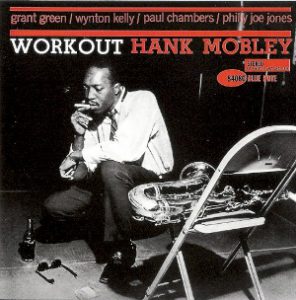Imaginary (2024) and Ghostbusters: Frozen Empire (2024) with Hollis Monroe, Phil Brown and Monica Schmidt.
Podcast (talkingpics): Play in new window | Download
Subscribe: Apple Podcasts | RSS
Imaginary (2024) and Ghostbusters: Frozen Empire (2024) with Hollis Monroe, Phil Brown and Monica Schmidt.
Podcast (talkingpics): Play in new window | Download
Subscribe: Apple Podcasts | RSS
The search continues for six workers presumed dead after that bridge collapse in Baltimore…Republicans in Des Moines are working on proposed constitutional amendments dealing with Iowa’s income taxes.
Podcast (news-digest): Play in new window | Download
Subscribe: RSS

The Independence Jazz Orchestra joins The Corridor Jazz Project for the first time in 2024. JD Huffman and Teegan Cross represent their band and school on KCCK.
Teegan and JD’s Playlist:
Podcast (specials): Play in new window | Download
Subscribe: Apple Podcasts | RSS
A bridge has collapsed in Baltimore after being struck by a container ship…Iowa’s top health official says Governor Reynolds’ plan for overhauling the state’s behavioral health system will make is easier for Iowans to get help.
Podcast (news-digest): Play in new window | Download
Subscribe: RSS
A church in Decorah goes solar.
Podcast (cuya): Play in new window | Download
Subscribe: Apple Podcasts | RSS
At 79, Erika Schwartz is one of the youngest Holocaust survivors. Her memories are those of the lasting PTSD her mother suffered due to their imprisonment and post-war life under Communist role in Hungary. Erika didn’t really come to terms with why she struggled with self-esteem and finding meaning in her life until middle age.
Erika will give two public presentations in Cedar Rapids as a part of the Thaler Holocaust Speaker Series, April 1 at 7pm at Coe College and April 2 at 1:30 in Kirkwood’s Ballantyne Auditorium. The Kirkwood event will be live-streamed at www.kirkwood.edu/ballantyne.
More information on Erika’s appearances and a wealth of details and history of the Holocaust at www.holocausteducate.org.
Subscribe to The Culture Crawl at www.kcck.org/culture or search “Culture Crawl” in your favorite podcast player. Videos on KCCK’s Facebook and YouTube channels. Listen Live at 10:30am most weekdays on Iowa’s Jazz station. 88.3 FM or www.kcck.org/listen.
Podcast (culturecrawl): Play in new window | Download
Subscribe: Apple Podcasts | RSS
Four men have been charged with the attack on a concert hall in Russia that killed more than 130 people…Senate Republicans could act on an education package affecting Iowa’s AEAs this week.
Podcast (news-digest): Play in new window | Download
Subscribe: RSS

Hey, Jazz fans! Be sure to tune in this week as we celebrate the birthdays of saxmen Ben Webster, James Moody, Michael Brecker, and Lew Tabackin, bandleaders Paul Whiteman and Matt Catingub, bassists Ike Isaacs, Larry Gales and Paul Jackson, drummer Paul Motian and Steve Fidyk, singers Sarah Vaughan, Astrud Gilberto, Stacey Kent and Ledisi and more. We’ll also mark the recording anniversaries of Duke Ellington’s “The 1952 Seattle Concert” (1952), Hank Mobley’s “Workout” (1961), Paul Desmond Quartet’s “Like Someone In Love” (1975), Andre Previn, Joe Pass, Ray Brown’s “After Hours” (1989), Mario Bauza and the Afro-Cuba Jazz Orchestra’s “944 Columbus” (1993), Brent Jensen’s “The Sound of a Dry Martini: Remembering Paul Desmond” (2001) and many others, Mondays thru Fridays at noon on Jazz Masters on Jazz 88.3 KCCK.